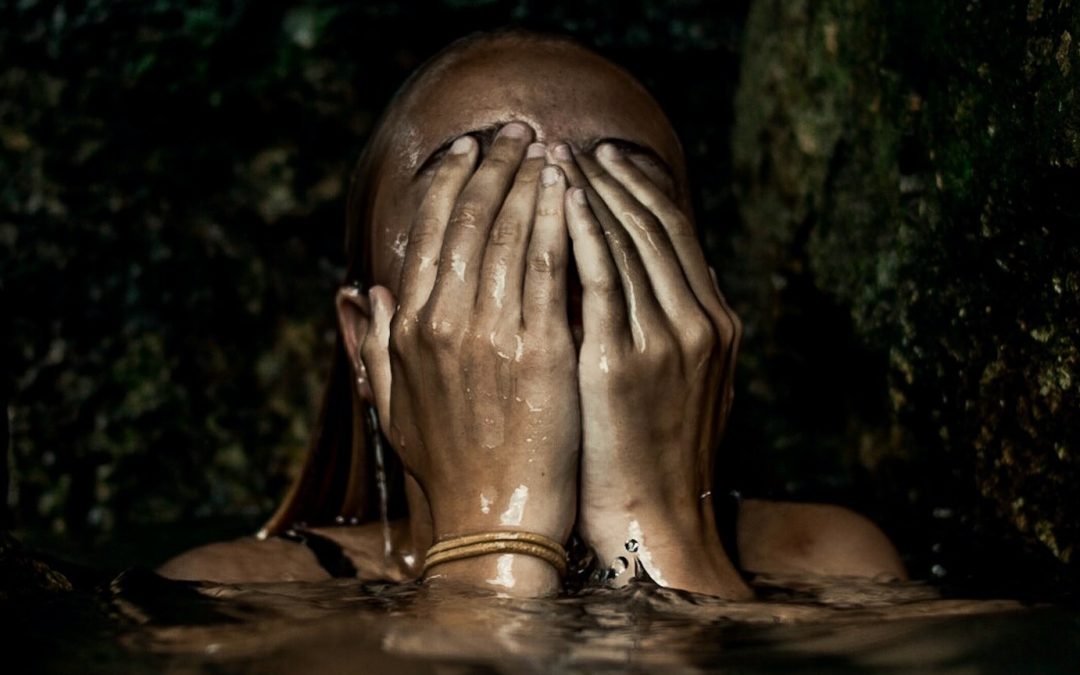Shame and CPTSD
For those of us seeking to heal from CPTSD and related conditions like co-dependency, we’ve likely discovered by now how shame has been running in the background of our psyche our whole lives, like a computer virus sabotaging our ability to heal and live peacefully. Shame is at the root of our CPTSD symptoms such as anxiety and depression and can be so deep-seated that it’s difficult to discern how and when it’s running the show, much less how to take hold of it and change it.
We’ve been given wonderful, effective strategies to heal the shame that came from growing up in abusive and/or neglectful environments. The first is a mental excavation to discover the various dysfunctional ways that shame makes us feel and behave, and what triggers it. The next is self-compassion, forgiveness, esteem-building, and the long, hard work of fighting our vicious inner critic into submission. You know, the one that keeps shaming us over and over.
Shame as a Cultural Norm
What doesn’t get recognized, however, is that we are also having to fight cultural norms that provoke and feed on shame. Whether it be Western culture as a whole or the sub-cultures within it, we’re bombarded with shame-inducing stimuli every day. This can make healing shame even more confusing and tenuous for those of us trying to heal the toxic shame of CPTSD.
Look to Our Language as Proof
How do we know shame is a cultural norm? To understand what a culture holds valuable, all you have to do is look at its language. Look at the clichés and idioms of a culture and you’ll be surprised by what is hidden in plain sight. The following focuses on the American English language.
Examples of common sayings about shame:
“Shame on you,” is such a common saying, it’s a cliché. The same can be said for, “You ought to be ashamed of yourself.” There’s even a common hand gesture used to shame others— stroking the top of your index finger with your other index finger, “Shame, shame, shame!”
These sayings are just the tip of the iceberg. There are plenty of shaming cliches that don’t contain the word ‘shame.” Those of us with CPTSD can list a book of them, I’m sure.
Shaming pride, the opposite of shame:
To look at it from the opposite perspective, what is the top antonym for the word “shame”? I searched online, “shame antonym” and the first word that popped up was “pride.”
What do our cultures teach us about pride? Fortunately, the word “pride” is beginning to be reclaimed as a virtue, but traditionally pride is thought to be a fatal human flaw and is still very commonly denounced in many American communities, both directly and indirectly.
In Christianity, the most popular religion in the world and the most widespread in the U.S., pride is one of the seven deadly sins!
We are being steeped in explicit and implicit messages that we should not be proud of ourselves and if we are, we should be ashamed. See how that works?
Examples of common sayings about pride:
Who hasn’t heard, “Swallow your pride,” right? Another common saying is, “I’m so proud of you,” indicating that its ok to be proud of someone else, but not of yourself.
How about the following common phrases that shame people for daring to feel proud of themselves: “Don’t get a big head” / “You think you’re so great” / “You’re getting too big for your breeches” / “Don’t be so stuck-up” / “Who do you think you are?” / “She’s got her nose in the air” / “You think your shit don’t stink.” There are plenty more.
Why is Shame a Cultural Norm?
I have not done any scientific studies on this, but here are two of my observations as a social science buff:
1. The US is a Christian nation and Christianity, as pointed out above, holds pride to be a deadly sin. As such, our deep-seated child-rearing traditions reflect this, and we are taught (sometimes unconsciously or even maliciously) from a young age that we should be humble, that we should “know our place” (that’s another idiom).
Unfortunately, too many children do not get healthy discipline on humility while also having their natural self-esteem supported. They get shamed and humiliated instead, ultimately destroying their self-confidence.
This type of child abuse is widely accepted as routine parenting and the reason why I believe CPTSD is way more widespread than the current estimates state.
2. Our capitalist culture runs on consumerism. In order to sell things, people must be made to feel like they need more than they already have. This creates competition among people to present themselves in a certain way to be accepted. That competition even has a name: “the rat race.”
Being in a race to gain more acceptance through status (aka: “keeping up with the Jones’s”) is like any other competition. It has winners and losers, the “haves” and the “have nots.” And you guessed it, the “have nots,” which exist on a continuum throughout the classes, are continually shamed. This system of commercialism is built on shame and the dire human need to avoid feeling it.
The irony is, if we weren’t taught as children to be ashamed of ourselves, to doubt ourselves, to suppress our natural pride; if our self-esteem hadn’t been annihilated in the name of teaching humility, we wouldn’t rely on status for acceptance. We would be self-accepting. It truly is a vicious cycle.
Call to Action
Identifying shame:
It’s important to know that shame isn’t just in our head, the voice of our inner critic. Shame also bombards us from the outside every day, whether it’s through the same people and communities we grew up with, new ones, or American cultural norms that seek to make us feel lesser in order to sell something. It’s so ingrained, that it is camouflaged.
For me, to detect shame, I make it into a game. I use my oh-so-special CPTSD trauma response of obsessiveness to help me identify even the most veiled shame-inducing stimuli. Then I feel pride for having sniffed it out. (I use inner games a lot in my healing processes.)
Much of it may be difficult to discern at first because it is so entrenched. However, by paying close attention, our emotional and somatic feelings will alert us when there is shame involved in a situation, no matter how covert it may be. CPTSD makes us extremely sensitive to shame, but we may still be reacting to it unconsciously. The key is to notice those feelings and trace them back to the shame-inducing source.
Setting boundaries:
Once we’ve learned to sniff out shame in all of its incarnations, the next step is to draw a boundary between it and ourselves. Like identifying shame, drawing those boundaries may be difficult for a while.
Having toxic shame makes it hard to feel worthy enough to set a boundary. We may feel perhaps selfish or haughty in setting boundaries. Just remember that those are trauma responses. You might hear your inner critic say, “Who do you think you are?!” You can respond by saying, “I am cutting shame out of my life, so go F yourself,” and keep going. (Feel free to be as vitriolic as you want with your inner critic. Turn that toxicity around onto him or her. Over time, that critic’s voice will lessen.)
Fake it Until you Make it
It’s true when CPTSD sufferers say that you have to “fake it until you make it” during the healing journey. I have also experienced this phenomenon.
It is a catch-22 to have to heal our shame when our shame keeps us from feeling worthy of healing. So, the key, in the beginning, is to fake self-esteem, just enough to allow us to draw boundaries and make other healthy decisions for ourselves.
It is very uncomfortable at first. It feels wrong and unsafe because we’ve been living in our CPTSD comfort zone for so long. Do it anyway. The temporary discomfort is necessary and it’s worth it.
When someone shames us for acting or speaking with self-esteem, we take notice! And we draw that boundary by standing up for ourselves, or however that may look in that situation. Again, it will feel uncomfortable, and we may fail initially but the more we try, the more comfortable it will become, and the more real our self-esteem will become too.
Sending much love to you!
Guest Post Disclaimer: Any and all information shared in this guest blog post is intended for educational and informational purposes only. Nothing in this blog post, nor any content on CPTSDfoundation.org, is a supplement for or supersedes the relationship and direction of your medical or mental health providers. Thoughts, ideas, or opinions expressed by the writer of this guest blog do not necessarily reflect those of CPTSD Foundation. For more information, see our Privacy Policy and Full Disclaimer.

Sarah H. Clarke is a writer and author that uses her passion for research and idea exploration to educate, create awareness, inspire and provoke further thought and conversation about what she believes is the most under-recognized human crisis of our time: trauma.
In 2021, Sarah was astonished to discover childhood trauma as the root cause of her lifetime’s worth of emotional turmoil. While she had managed to be generally successful in life, she still had a deep-seated distrust in others and was terrorized by the looming vat of depression and tyrannical feelings of self-consciousness and anxiety that seem to arise from nowhere.
With that new information in hand, Sarah was inspired to find out more, to heal herself and change her life—transform it from the life she built in fear to one built on self-love, confidence and authenticity. She humbly shares her experiences and findings on this journey through her website & blog and invites you to follow her at www.sarahhclarke.com.




